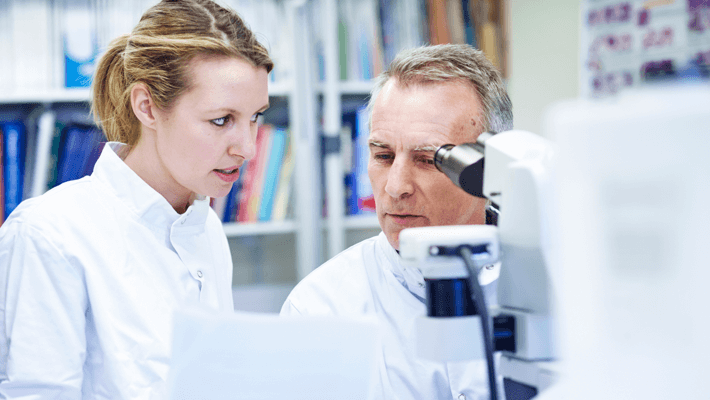Content management error: Header Banners should not be placed in the Navigation placeholder!
Medical Devices
You'll already have experienced how a revolution in science and technology is changing health.
Content management error: Generic Content Banners should not be placed in the Navigation placeholder!
Start-ups and experienced providers alike are unleashing the power of smart, connected objects and AI-powered big data to bring a step change to medical diagnosis and treatment.
Meanwhile, pharma labs are busy developing a new generation of personalised medicine and other drugs to compete against the rising tide of generics.
We see several thrilling trends in this environment:
Content management error: Generic Content Banners should not be placed in the Navigation placeholder!
1. Digital Diagnosis
Huge leaps in artificial intelligence are making sensors and software a powerful ally to the world’s medical professionals. Already, pattern recognition through machine learning can swiftly deliver a better-than-human diagnosis of pneumonia from an x-ray.
Some virtual assistants help doctors communicate with patients, reducing stress; others offer a diagnosis through simple question and answer.
Meanwhile, in the lab, robots are lifting the burden of interpreting blood tests from doctors and explaining the results to patients. Genetic and other test analysis is following close behind. Soon, our phones and laptops will be better diagnosticians than our doctors, freeing them to perform even more important tasks.
Our Life Sciences services offer patient support programs that can help your business build strategies around the diagnosis and ongoing monitoring of patients, including improved digital methods.
Content management error: Generic Content Banners should not be placed in the Navigation placeholder!
2. Securing health data in the cloud
A world-sized robot: that is what the Internet of Things amounts to. With this tremendous opportunity come risks that need to be managed. Proper cybersecurity prevents hackers from accessing this global network, stealing patient information, interfering with diagnoses or meddling with life-saving monitoring processes.
A new wave of technology solutions is coming to the rescue such as Apple’s Face ID, which builds security into the hardware and ensures patient records and safety remain under the control of the good guys.
With security of such importance, we have more than 5,000 Colleagues who offer specialised IT solutions, including support for cloud services and best-in-class data management and integration.
Content management error: Generic Content Banners should not be placed in the Navigation placeholder!
3. Hands-on health data [or Hands-on mobile health]

Increasingly, health is in our very own hands. Monitoring software comes installed as standard in many smart devices and there were estimated 3.6bn downloads of mobile health apps in 2017.
New types of wireless sensors, such as fit-bands, let millions of consumers measure and monitor their own health data and share it with medical professionals.
With all this comes a new emphasis on making sure the care that’s promised is delivered. And the data can be stored in the cloud, raising the stakes in privacy, data handling and data management.
Our Consultants can provide support across the data requirements, research & development and manufacturing of smart sensors and devices. We can even tailor the entire end-to-end manufacturing, delivery and monitoring of these devices through our global Delivery Centers.
Medical Devices
A revolution in science and technology is changing health. Start-ups and experienced providers alike are unleashing the power of smart, connected objects and AI-powered big data to bring a step change to medical diagnosis and treatment. Meanwhile, pharma labs are busy developing a new generation of personalised medicine and other drugs to compete against the rising tide of generics.
Content management error: Generic Content Banners should not be placed in the Navigation placeholder!